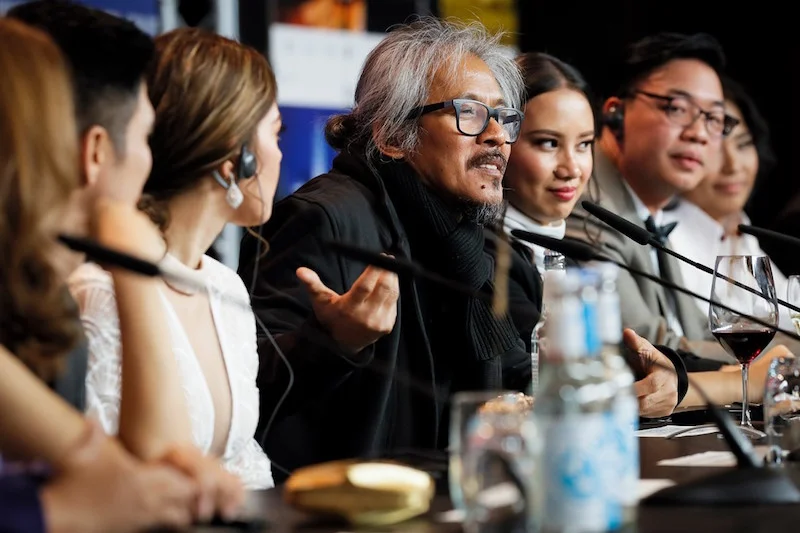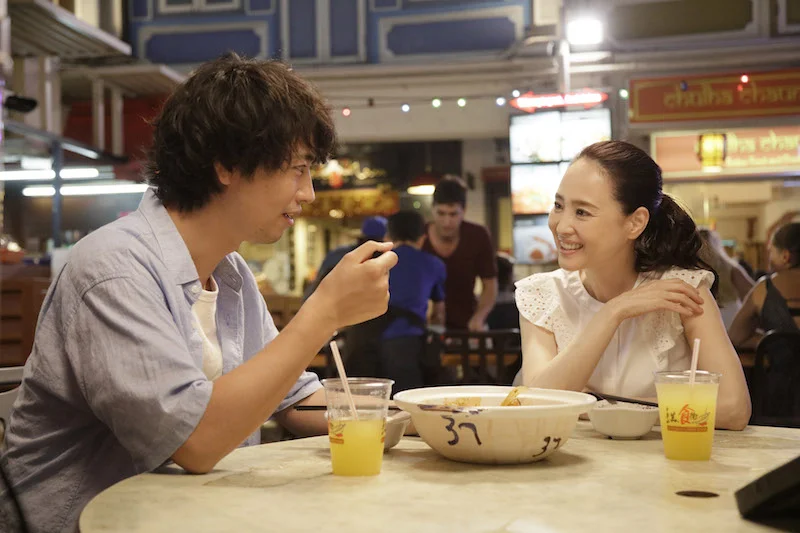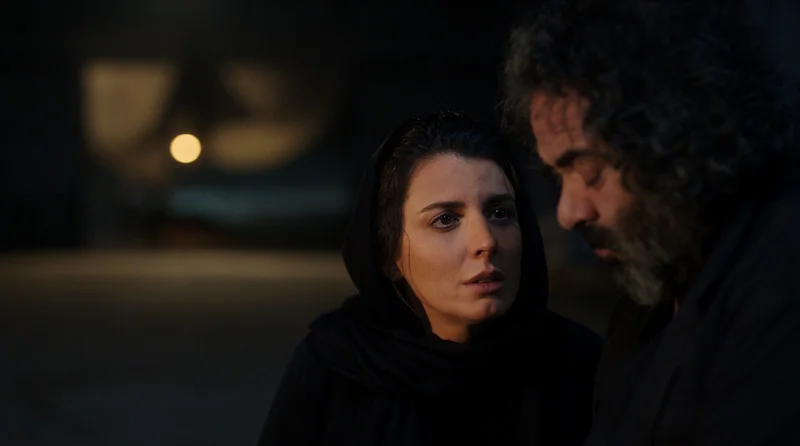As I sit next to colleagues during press screenings, and get to chat with communications experts and festival programmers inside the Glashütte Golden Bear Lounge -- my haven during Berlinale -- more and more I feel a sense of doom and gloom. I mean, the champagne and wonderful espressos complete with afternoon brownies inside the Lounge do offer respite from my visions of a cinematic apocalypse, but the reality of finding myself without a steady place to post sets in more and more.
The editors of this world, those in charge of making the decisions on the material that gets published, are increasingly choosing to go with grand, Hollywood, blockbuster movies and celebrities, leaving independent films and the maestros of cinema, those voices which helped shaped the landscape of the seventh art history, out in the cold. Or better yet, locked in a darkened movie theater would be more appropriate.
It's like 'Cinema Paradiso' but even worse. Because the ending is real, and it ain't pretty.
I understand we must cater to what the audiences and the readers crave, but when do we actually uphold a standard for culture... I get it, give the people what they want, but shouldn't we sprinkle a little of what they need in there with it?
When I sat with the maestro Lav Diaz for our interview for his Competition film 'Season of the Devil', he pointed to the film critics, the journalists who write about cinema, as an integral part of the filmmaking process. And I agree wholeheartedly with the genius that is Diaz, a man who, in this age of everything fast and immediate, still makes films that lull us into watching them for four and a half hours, or more! He teaches us how to watch his cinema, and I believe as film writers, we hold a responsibility to teach audiences to find those films.
Takumi Saitoh and Seiko Matsuda in a still from Eric Khoo's 'Ramen Teh'
Photo courtesy © Zhao Wei Films/Wild Orange Artists
Remember the old adage, "you are what you eat?" Agreed but we are also what we watch, and if violent shootings and disillusionment needing of prescription drugs happen it's because of the carnage we watch on TV and the films that feed us a steady menu of violence and brutality. Try substituting that with a little bit of cinematic poetry and a lot of the crimes will go away. Mark. My. Words. Am I an idealist? You betcha, but I've seen the power of cinema and I know what it can do.
While I waited to interview Diaz, I had a starstruck moment. Those don't really happen often for me, but sitting right across from the formidable Leila Hatami -- from the Oscar winning 'A Separation' and 'Leila' -- I felt the full power of her strength as a woman and her absolute beauty. Wow. With her brown hair she is even more striking and as Shiva Mohajer in Mani Haghighi's Competition title 'Pig' ('Khook' is the film's original name) she is phenomenal. You know how they say "the camera loves her"? Well, the light loves Hatami because she is equally as perfect on the big screen as she is when the cameras are turned off.
Leila Hatami with Hasan Majuni in a still from Mani Haghighi's 'Pig'
Her filmmaker was talking to a TV crew when I overheard him say that "on social media it's rare to be praised for something as it's much more common to be attacked there," and of course Haghighi offered another wisdom for the ages. His film points to the absurdity of living our lives on social media which of course now means we live very little of our time in real social situations. It's like what Umberto Eco has said:
“Social media gives legions of idiots the right to speak when they once only spoke at a bar after a glass of wine, without harming the community. Then they were quickly silenced, but now they have the same right to speak as a Nobel Prize winner. It’s the invasion of the idiots.”
While I love my Twitter and FB, I also realize that I've lost something in the process of becoming socially mediatic. I've lost my ability to be social in real life. Period.
The most wonderfully social thing one can still do of course is eating together. And in his latest film 'Ramen Teh' -- screening in the Culinary Cinema section -- Eric Khoo explores roots, delves into comfort foods, films across countries and narrows the divide -- all in one cinematic swoop. I told Khoo that watching 'Ramen Teh' felt a lot like having a hot, perfect bowl of ramen at the end of a hard day at work. Exactly what your body and soul need.
Featuring Takumi Saitoh and Seiko Matsuda -- the latter a pop icon dubbed the "Eternal idol" by Japanese media -- 'Ramen Teh' weaves through the story of Masato who goes to Singapore to retrace the steps of his family's journey from there to Japan, years earlier. The film is as touching as it is delicious to watch and Khoo, who is credited with the renaissance of the cinema movement from Singapore really is a maestro, yet a kind and humble one to boot.
Hurray for filmmakers without egos. Or at least ones they leave at home for the interviews.


